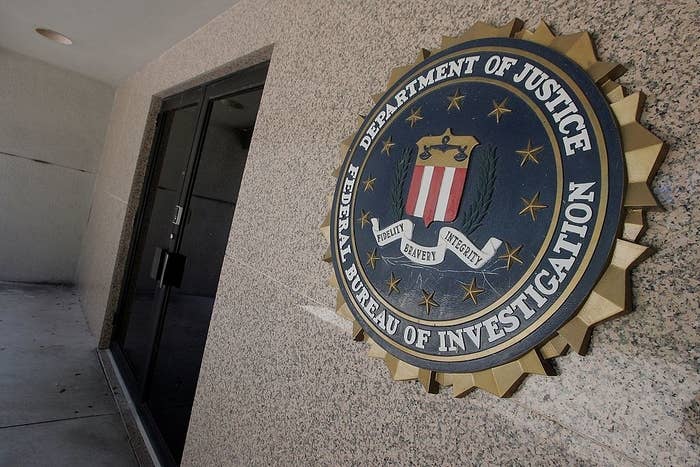
An ISIS supporter who came to the US as a Syrian refugee was arrested Wednesday for planning to bomb a church in Pittsburgh, the FBI said.
Mustafa Mousab Alowemer, 21, was charged with one count of attempting to provide material support and resources to ISIS and two counts of distributing information relating to explosives.
He allegedly planned to detonate the bomb at the Legacy International Worship Center in Pittsburgh, which he targeted because he believed its congregants were Christian and Nigerian, according to the affidavit.
"We, we, take revenge for our brothers in Nigeria," Alowemer told an undercover FBI agent, the affidavit stated.
A Syrian refugee/Pittsburgh resident was arrested today for plotting to attack a North Side Christian church in the name of ISIS. Mustafa Mousab Alowemer, 21, is charged with attempting to provide material support/resources to ISIS, among other charges @KDKA
Alowemer was born and lived in Syria, until he came to the US as a refugee in August 2016 and settled in Pittsburgh. He recently graduated from a public high school in the city.
He thought he was planning the attack with another ISIS supporter, who was actually an undercover FBI agent. They communicated online and met four times in person, and Alowemer sent the agent bomb-making instructions and ISIS propaganda.
He had already purchased nail polish remover, batteries, ice packs, and nails in order to build the bomb, according to the affidavit, and had printed out maps of the church that he'd marked up to plot his entrance and escape route.
The attack was planned for a Sunday in order to maximize damage, he told the agent.
Assistant Director Michael McGarrity of the FBI’s Counterterrorism Division said the FBI "takes threats to churches and other religious institutions extremely seriously and will use all our resources to stop potential terrorist attacks against them.”
“Targeting places of worship is beyond the pale, no matter what the motivation,” said Assistant Attorney General Demers.
The church's pastor, Michael A. Day, said in a statement that he was grateful "God thwarted such a tragedy, protecting our congregation."
Statement by Assistant Director Michael McGarrity, of the FBI’s Counterterrorism Division on Mustafa Mousab Alowemer, a Syrian man, arrested on terrorism charges after planning attack on Christian church. https://t.co/kmxDl08ufT
In January 2017, President Donald Trump signed an executive order indefinitely suspending Syrian refugees from entering the US, saying he'd established "new vetting measures" to keep "radical Islamic terrorists" out of the country.
However, the risk of refugees killing people through terrorist acts in the US is vanishingly small. According to the Cato Institute, 25 out of 3,391,203 refugees admitted between 1975 and 2017 were terrorists, equaling 0.00074 percent of the total. Of those 25, just three — who were from Cuba and Croatia — were successful, killing three.
Over the past few months and years, there have been several attacks on churches, mosques, and synagogues.
In April, a shooter killed one and injured three at a synagogue in Poway, California, after sharing a manifesto on 8chan that railed against Jews. He is also suspected of having set fire to a mosque in Escondido the month before.
Fifty people were killed at two mosques in Christchurch, New Zealand, in March after a shooter opened fire during prayers. The shooter livestreamed the attack and left a manifesto in which he called his victims "invaders."
In October, 11 people were killed in a shooting at a synagogue in Pittsburgh allegedly by a neo-Nazi who railed against Jews, immigrants, and refugees and pushed a white supremacist agenda online.
In 2017, 26 people were killed in a shooting at a church in Sutherland Springs, Texas, by a shooter with a history of domestic violence.
Nine people were killed in 2015 at a primarily black church in Charleston, South Carolina, by a white supremacist.
